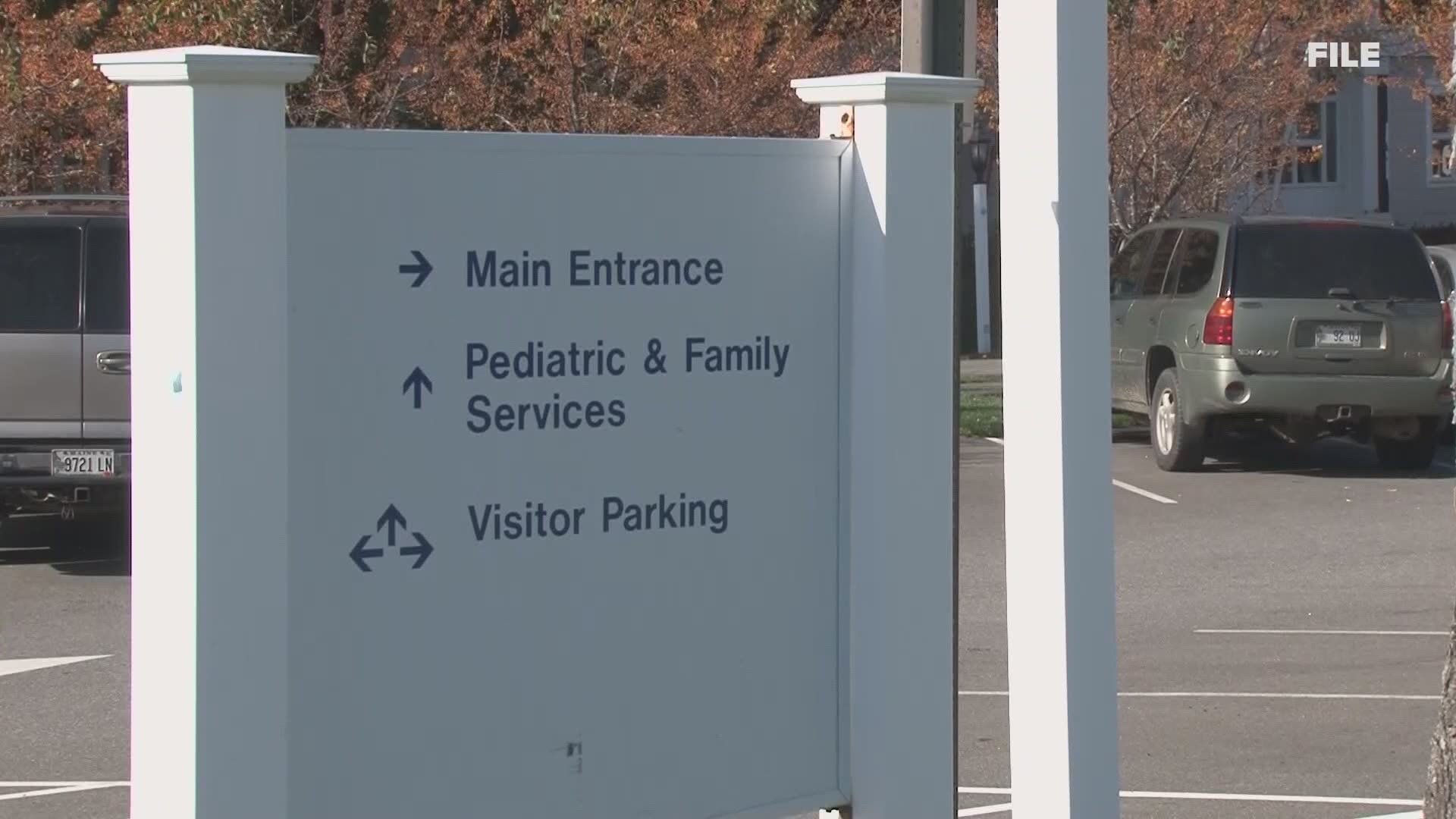BANGOR, Maine — Having a healthy relationship with food isn't a natural experience for some people. That's why February 22 to 28 in 2021 is dedicated to recognizing the annual National Eating Disorders Awareness Week -- an indication to those struggling that they're not alone.
Statistics from the National Eating Disorders Association indicate eating disorders have the second-highest mortality rate of all mental health disorders, behind only opioid addiction. They can be hard to treat and diagnose -- and for people living with them, it can be difficult to go about everyday life in a carefree and normal way.
20-year-old Mary Richardson from Blue Hill understands that struggle firsthand. She's on a journey to beat her eating disorder after a years-long battle, which she said was perpetrated by the idea of maintaining a certain body type in cross country and track. Richardson describes her eating disorder as a "dangerous cycle" of trying to maintain control.
"Early in high school, I started to notice I'm like barely five feet tall -- and I just felt very odd-girl-out by my body," Richardson said.
RELATED: Peer addiction support: People in long-term recovery available as resources to those struggling
She said for a while, she wasn't open to accepting help because she didn't think she "deserved" it. Richardson said she was never very underweight or appeared to have an eating disorder from the outside. It wasn't until college when she was "softly diagnosed" with an eating disorder that she sought help.
Since last spring, Richardson has been taking part in an eating disorders recovery outpatient program at Northern Light Acadia Hospital. The program uses a psychiatrist, two therapists, and a dietician to help patients get the help they need since eating disorders affect both physical and mental aspects of health. It offers individual, family, and group therapy -- as well as nutrition counseling, and medication management if needed.
"You kind of have to grab this opportunity and do your part and carry your weight," Richardson said about the need to want to improve for yourself.
A key message experts want to emphasize is that anyone can be affected. Sara Porter, a clinical supervisor for pediatric outpatient services at NLAH, says eating disorders don't discriminate. They happen to a larger range of people than affluent, young, white women.
"Sometimes, eating disorders can be visible -- but I would say more often than not, we wouldn't know if someone has an eating disorder just by looking at them," Porter said.
She says there also needs to be a greater emphasis on eating disorders in general. The NLAH program brings in people from all over the state since it's one of only a few of its kind in Maine.
"I think eating disorders are less recognized, if you will, within the mental health community," Porter said.
Mary Lavanway is a registered dietician nutritionist in Maine, who is certified for eating disorders through the International Association of Eating Disorder Professionals. She is based in Hampden and says she has experienced similar challenges. A number of her patients have had to find treatment options out of state during the pandemic. She thinks there needs to be more funding and more people trained in eating disorders in general.
"When you look even within the limited amount of money that is spent on mental health, eating disorders is such a small fraction of that," Lavanway said.
During the coronavirus pandemic, experts say the need for resources is as important now as ever. Isolation can lead to eating disorders -- and the nature of the pandemic has exacerbated that tendency.
"We have seen a 40 percent increase since the beginning of the pandemic of people reaching out for support for eating disorders from our helpline," Lauren Smolar, the senior director of programs with the National Eating Disorders Association, said. There has also been an 85 percent increase in people reaching out through the chat function.
Smolar says she wants to stress that eating disorders are not a choice, and there are ways to help those affected. Signs to watch out for include weight loss, an increase in exercise, isolation, focusing on eating only healthy foods, restrictive diets, an obsession with body size, and withdrawal from friends and family. Medical components can be significant -- bone loss and the inability to function or think clearly.
Any time is a good time to reach out for help or gently start a discussion with someone you're concerned about by asking if they're having a hard time. Some resources include:
- National Eating Disorder Association Helpine at 800-931-2237
- National Crisis Text Line by texting HOME to 741-741
- Maine Statewide Crisis Line at 888-568-1112 (call or text)
- Northern Light Acadia Hospital Eating Disorders Treatment Program at 207-973-6048
- Mary Lavanway's services by emailing marylavanway@gmail.com
Statistics from the National Eating Disorders Association show eating disorders have the second-highest mortality rate of all mental health disorders...behind only opioid addiction.
That's why experts and those in recovery are hoping to raise awareness this week to let people struggling know they're not alone.
If you or someone you know is struggling, there are resources available.
You can start by calling the National Eating Disorders Association support line at 800-931-2237...or by visiting the association's website to learn more.

